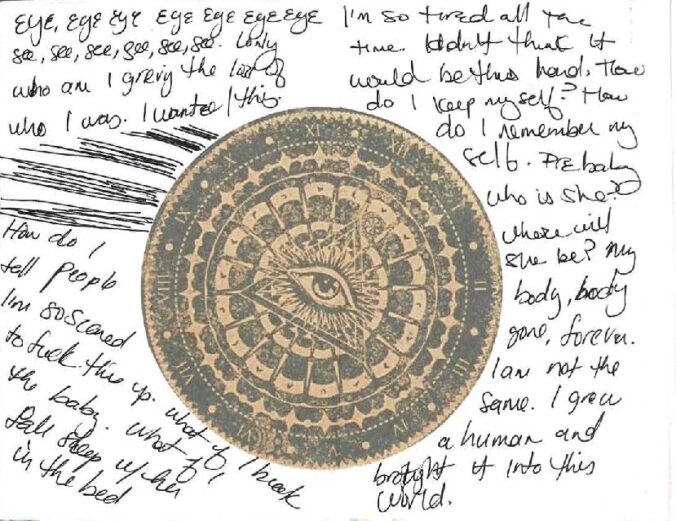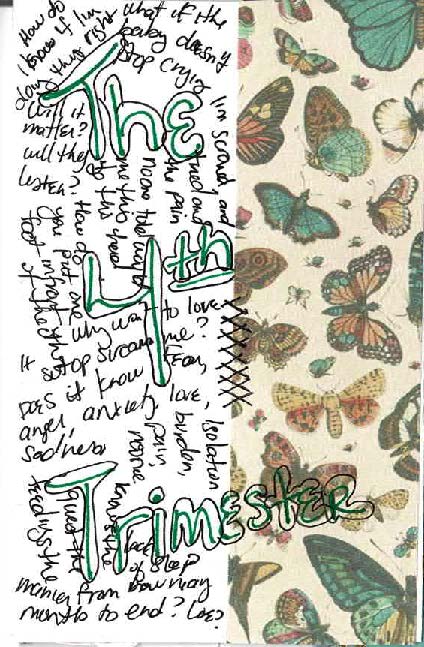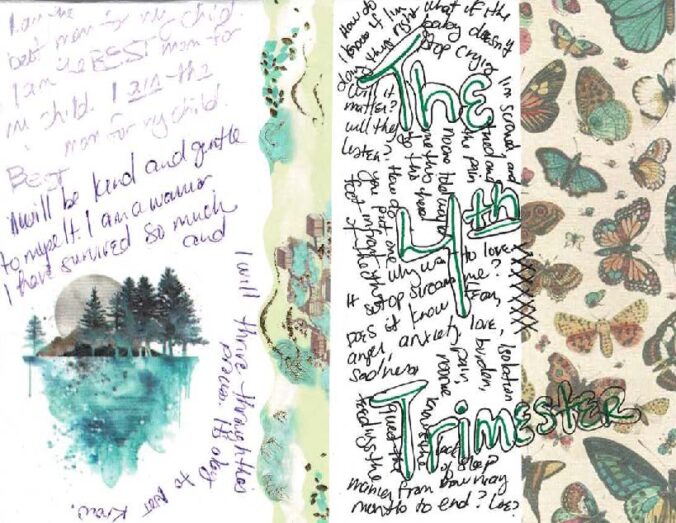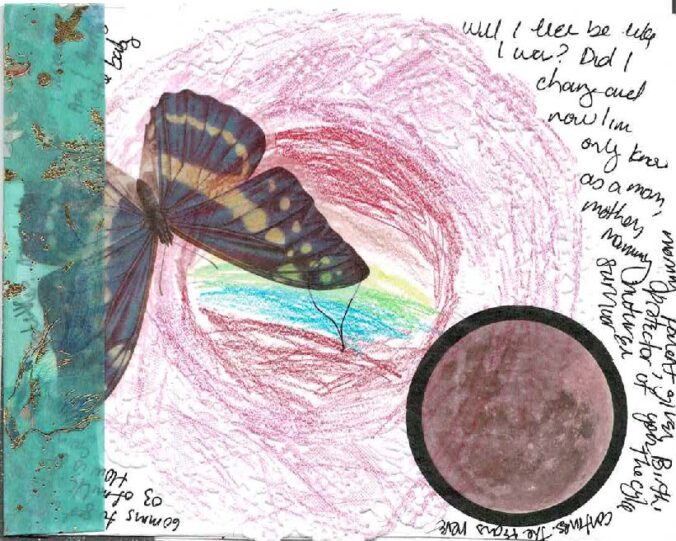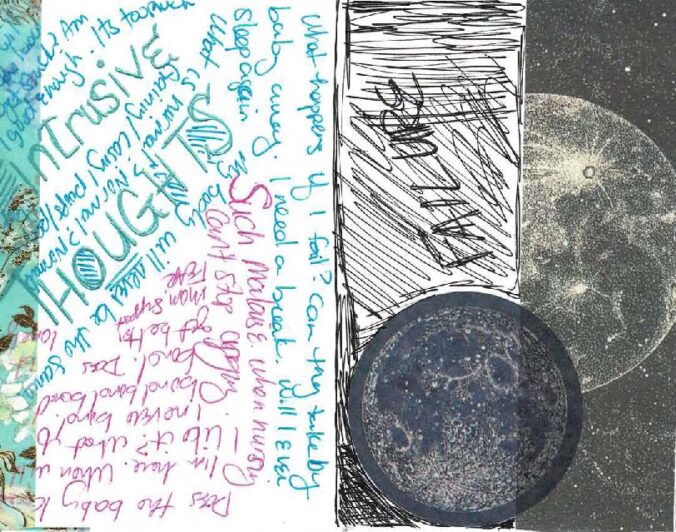Nikki Brake-Sillá – Performance – Group 2, Round 3 Awardee
“The Fourth Trimester” will use devised theater to heal people who have suffered traumatic births.
Project Description
Our intent with THE FOURTH TRIMESTER is to have ten participants in a six-week psychotherapeutic group, helmed by a licensed Social Worker, reproductive psychotherapist, and International Board-Certified Lactation Consultant, Jabina Coleman, that will combine group therapy with individually devised monologues, patterned after A.M.A. – AGAINST MEDICAL ADVICE. Each participant will be able to create a monologue around their fourth-trimester experience. Participants will also be provided a care package of resources and journals and an anonymous artistic representation of their time in the support group. Childcare and transportation will be provided to the parents if these pose a barrier to participation.
THE FOURTH TRIMESTER is a call to action, highlighting the lack of support Black women and birthing folx receive before, during and after pregnancy. This call to action addresses the maternal mortality crisis that is affecting Black women who are dying three to four times the rate of their white counterparts (CDC) and at a rate of 2.7 times more likely in Pennsylvania (PA DOH). It sheds light on the data from the latest study in Philadelphia that found that nearly 50% of the women who died in the first year postpartum had a mental health diagnosis. It is educating birth workers, families, and communities on the importance of advocacy for equitable and safe maternal health practices. It is addressing breastfeeding disparities. Lastly, it is holding legislators accountable for holding Black birthers at the center of policymaking for Black maternal health.
Birthers will be identified through a vast network of midwives, OBGYNs, women’s health nurse practitioners, and doulas. We anticipant having more requests than available spots and would implement a lottery system to ensure equitable access. We will seek out people who are currently pregnant and have a history of birth trauma, i.e., history of miscarriage, previous diagnosis of high blood pressure, emergency C-sections, NICU stays, first-time parents, and parents who will have a child less than 12 months old by December 2023. This will ensure that the participants are in various stages of their fourth trimester. Due to the nature of the work, those not selected for the psychotherapy sessions will still benefit from the materials, handouts, and monologue exercises.
A.M.A. – AGAINST MEDICAL ADVICE is a theatrical monologue that chronicles a Black mother’s postpartum week in the Neonatal Intensive Care Unit (NICU) with her newborn daughter. The monologue begins with Dana as she introduces her daughter to the other infants in the NICU. The audience witnesses firsthand when the situation devolves to the climactic moment when Dana tells the attending pediatrician that she plans on withdrawing her daughter from the hospital against medical advice.
Actors will be filmed as they perform the devised works, along with silhouette puppetry/animation as a tool to relay their stories at a one-day performance of all the devised pieces. Using a combination of filmed puppetry installations and photo collages of items provided by the participants will distance people from the trauma and aid in their healing.
The goals and intended impact of this process is healing. They are healing the wounds that trauma births have layered on the bodies of Black parents. Through art, we hope to begin a conversation that brings light and lifts layers of pain from the persons involved. The more a story of trauma is told through a lens of light and care, the less the experience is held. By using puppetry installations in combination with video vignettes of participant-devised monologues, each person will be able to harness their power and regain their humanity and voice. Too often, mental health is pushed to the background due to cost or access. People can watch the videos, hear the stories, and find their shared experiences to heal.
Jabina and I have both witnessed how birth trauma has a multiplicative effect on birthing people who can’t advocate for themselves or lack access to resources and support. That is why this project is imperative. Giving birth is often one of the most stressful life-changing events.
Birthing individuals should not feel like their voices are not heard. And if they think that way, we want to provide them with the tools to question and demand the proper care for themselves and their infants.
This project engages communities by demonstrating what situations can be encountered by birthers of color in the health system. It’s a way for people to see methods used for self-advocacy while shining a light on how healthcare providers can be more holistic in caring for their patients. We are more than a wristband to be scanned each time a medication is given. We have a right to be seen. How we feel is valid. We have the right to kind, humane, and compassionate care. Through the lens of the participants, we would like to bring awareness to maternal mental health, provide access to resources and support available to new parents in Philadelphia, hold legislators and policyholders accountable for centering Black and marginalized birthing people and continue the voice of advocacy through action.
ArtISPHL funding would pay for actors, psychotherapy services, childcare, cinematography, transportation, ProBono ASL interpreters, puppetry, illustration, theater rental, and rehearsal space for the actor’s performance. Film eliminates the inability to access due to physical limitations. Continuing to be intersectional in this project concerning access and thought is a way to ensure that everyone is held.
The multifaceted media components that make up THE FOURTH TRIMESTER are for people who have been on the receiving end of racism and bias during a time when they should be exalted for bringing a new life into the world. This is for future parents to use as a tool to find their voice during a time fraught with unknowns and exhaustion. This work is also for all the practitioners who are the gatekeepers of the mother’s load. They are the foundation on which the postpartum journey begins. Building these relationships across doula, OBGYNs, midwives, nurses, and residency continuing education programs is crucial to moving the needle of patient care.
Statement of Ethics
I have given much thought to ensuring that trauma is not perpetuated during this process. To guarantee more harm is not inflicted, the writing exercises and devising will occur before the group therapy sessions. This will make sure that if anything triggering is brought up, it can be processed during group therapy under the guidance of Jabina Coleman MSW, IBCLC, a trained mental health professional. Also, everyone will be provided with one, individual therapy session with Jabina after the group sessions to discuss anything they did not feel comfortable disclosing in a public forum. We are also in conversation with Kimberly Seals Allers from irth App to “capture more reviews for the Irth app and with hospitals, payers, and providers to leverage our unique patient experience data for more equitable maternity care.” The final therapy session will end with a movement class facilitated by Lela Aisha Jones, a body somatic dance practitioner, to release trauma and focus on finding joy in the body.
Please scroll down to view all the other images.

